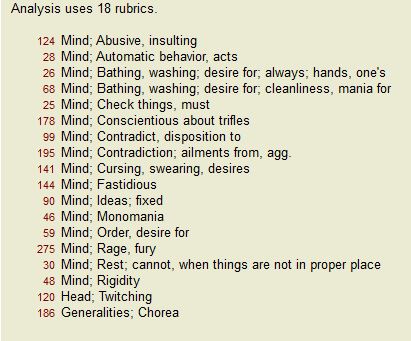What is PANS & PANDAS?
PANS (Pediatric Acute-onset Neuropsychiatric Syndrome) & PANDAS (Pediatric Acute-onset Neuropsychiatric Disorders Associated with Streptococcus) are infection-induced autoimmune conditions that disrupt a patient’s normal neurologic functioning, resulting in a sudden onset of a variety of symptoms such as:
- Obsessive Compulsive Disorder (OCD);
- sensory abnormalities & motor tics;
- high level of moodiness, irritability and anxiety;
- (developmental) regression;
- intense periods of psychiatric and behavioral issues (oppositional behavior, aggression).
Now there is some controversy around PANS/PANDAS especially because:
- it can only be clinically diagnosed (lab tests cannot definitively confirm a diagnosis);
- PANDAS/PANS resembles other conditions (such as Tourette’s Syndrome, Sydenham Chorea, and Rheumatic Fever).
The role of Homeopathy in PANS & PANDAS
In Homeopathy we work with ***symptoms *** rather than diagnosis so the fact that it is an “infection-induced” condition called PANS/PANDAS will not help us much in the remedy selection. For us (homeopaths) the important and decisive matter is NOT what is this condition called/labelled but how is it manifesting and what is it doing to your child (both to the body and mind)!
What kind of symptoms it is generating and how is the life of your child affected at various different levels (behavior, emotional state, mental health, physical symptoms…) are the crucially important factors during a homeopathic evaluation. This is something that we can work with and look at. It is also worth looking at some unique psycho-spiritual aspects of the case because inflammation is a symbol of materialized internal conflict and fight and Homeopathy can help to bring this inner conflict to light of consciousness.
We have many fascinating homeopathic remedies that can help with the symptoms of asthma. Some of the most important rubrics in our homeopathic repertory that cover the symptoms of asthma are:
HEAD – CONVULSIONS – SPASMS – TWITCHINGS – JERKS (52 homeopathic remedies);
HEAD – INFLAMMATION – BRAIN (155);
MIND – TICS – NERVOUS (33);
MIND – MOOD – CHANGEABLE – VARIABLE (403);
MIND – VIOLENCE – VEHEMENCE (375);
MIND – COMPULSIVE DISORDERS (126);
… and many more rubrics…
As an example from case taking I have created a list of most commonly used rubrics/symptoms from my own cases:

We have hundreds of homeopathic remedies that can effectively help children suffering from symptoms of PANS & PANDAS. The most effective way of dealing with asthma or any chronic (long lasting or recurring) ailments is constitutional prescribing/constitutional homeopathic treatment. It takes into account not only the patient’s current symptoms of his diagnosis (health problem) but also the patient’s individual way of coping with the disease. Good results can be also achieved through a combination of constitutional homeopathic treatment and homeopathic detox therapy (that can remove toxicity) with a possible occasional doses of some important homeopathic nosodes or sarcodes.
A homeopath will select a homeopathic remedy for the patient during a homeopathic interview/consultation. The homeopath will ask many questions about the patient’s medical history and all relevant and related symptoms, but will also ask about the patient’s life style, medical history, appetite, digestion, dreams, relationships and emotional state and many other aspects of one’s life.
Homeopaths try to look at the whole picture (all pieces of the mosaic) so they are interested in many various symptoms and details. This helps them to select a precise remedy called – similimum – a deep acting remedy that should help to alleviate the patient’s discomfort and improve his overall health and wellbeing.
References:
- Complete Repertory (Master Edition);
- Murphy, T.K., Gerardi, D.M. & Parker-Athill, E.C. The PANDAS Controversy: Why (and How) Is It Still Unsettled?. Curr Dev Disord Rep 1, 236–244 (2014). https://doi.org/10.1007/s40474-014-0025-3;
- https://pandasnetwork.org/;
- https://en.wikipedia.org/wiki/PANDAS.

